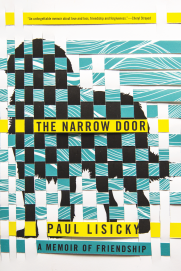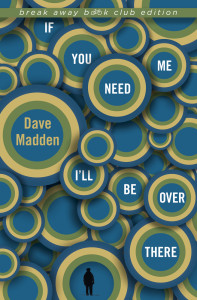 I.
I.
I think I want bitchy book reviews?or what for a long time (notably by the founding editors of The Believer) has been labeled “snark”?because they’re essayistic,[1] by which I mean they give you much more about the reviewer than about the thing reviewed. Now I need to figure out how to convince you why this is a good thing in book reviews. Aren’t they supposed to be about the books reviewed?
The answer is yes, but only if a review is what you need to decide whether to buy (or even read) a book. And I don’t know that there are many people out there for whom this is true. Regardless, it’s not true for me. I get recommendations from friends, family, bookstores. I’m attracted to covers, titles, blurbs. I know the author’s work from somewhere else. There are so many ways to decide to pick up a book that the function of a review seems less geared toward promoting a specific book than promoting a certain kind of conversation about books. And, as I hope to get to in more detail later, we should be able to allow any book to endure a conversation about it.
But here is the point I’m making now: Even if I need a review to tell me whether to buy a book, a bitchy, hatchet-job review isn’t going to deter me. In fact, it might make me pay more attention.
I don’t mean “there’s no such thing as bad publicity” so much as there’s barely even such a thing as publicity these days. When so few of the tens of thousands of books released in the U.S each year get reviewed, whatever draws my attention to a book seems worth defending. Bitchiness and snark aren’t the only ways to draw attention (though look at how much everyone loved Pete Wells’s review of Guy Fieri’s NYC restaurant), but a fun thing that happens is that in being unapologetically snarky a review shrugs itself out under the mantle/mantel of having to be authoritative, and suddenly books are a little freer.
II.
Let me give you an example.
Ian Sansom recently reviewed some food writing for the Times Literary Supplement. First up was what seemed like the sort of 83-pager you impulse-buy near a register. “There may be readers out there who are keen to have in one slim volume a recipe for volut? of celery, as mentioned in Bridget Jones’s Diary…” Sansom writes, “but they are either very hungry or utterly indiscriminating.” Next up is a Norton anthology of food writing, co-edited by Sandra M. Gilbert of and-Gubar/Madwoman in the Attic fame. Sansom’s issue with the book is that it is not as comprehensive as it makes itself out to be, and he does his job by pointing out the cultures and eras missing from the anthology, as well as the “dearth of fiction, no drama, and comparatively little on the economics of food production….” Then there’s this ?:
There is also a tendency towards the inclusion of excerpts from the work of American academics and journalists whose primary distinctions and qualifications lie in fields outside the culinary, but whose distinctions and qualifications are loudly insisted on nonetheless, as if tenure at a prestigious liberal arts college or at an Ivy League university might automatically make one an interesting or significant writer on the subject of, say, brunch.
There’s so much luster and loveliness in that “say”. So much dogged disregard.[2] I hear a voice there and I get a sense of a person. Do I get more of a sense of a person than I do of a book. I might. And that’s okay.
In the next ? he accosts the editors for including their own writing. Then he says, “A book about food that people might actually want to read,” and goes on to lovingly review a gossippy book about celebrity food rumors.
III.
I said that Sansom’s review gives me more of himself and his ideas than it does about the books he’s reviewing. It might not be true. I don’t want to, like, quantify it by measuring column inches or anything. But it’s true that his review shows me mostly (maybe only) how Sansom read the books he was assigned. And this, I think, is terribly important. That his voice and personality are all over the page spares the review from having to be “authoritative” in that vague, untrue way of non-snarky, “fair” or “objective” reviews. He’s not in charge of determining or pinning down the book’s ultimate universal value, he’s in charge of telling you how he felt about reading it. And it’s bitchy and fun and funny and alluring, and it makes me learn all about a book I might not otherwise pay attention to.
Have I now been deterred from this Norton anthology? No. I’d never be attracted to it in the first place[3], but if I needed such a book, I’d pick Gilbert and Porter’s anthology up. It’s a Norton anthology. And it’s Sandra M. Gilbert. Those names are strong enough to survive any piddling review in the TLS.
Maybe what I’m getting at is the old “punch up, not down” maxim of comedy. But I don’t want to argue that we should only bring bitchiness to the already exalted. Here I’m thinking of Tanya Gold’s beautiful takedown of NYC haute cuisine in Harper’s last year. Per Se is going to survive her review. Thomas Keller is going to survive her review. What doesn’t survive is the fortress of pretense and preciousness that’s been erected around the places she reviews. Sansom’s review does something similar with notions of importance and enjoyment in food writing.
There are lots of ways that books get exalted or revered that are to the detriment of our conversations about books. Snark, bitchiness?in the end I’m talking about irony, which has always been our usefullest tool to pull down cloaks and pretensions. Books are sturdy and complex things. If we worry that a review can hurt a book in any way, then books become things akin to holy relics, which is to say dead.
Having the courage to be bitchy seems to treat books and the whole world of publishing with a kind of loving respect that allows for frustrations and disappointment. The way Pauline Kael treated movies.
Where are the Pauline Kaels of book reviewing?
 A thing I’ve said more than once in classes is that every good book is a mystery. Which is to say that “mystery” isn’t something to be left for a certain genre of fiction. But mystery might apply just to novels, or to narrative more broadly. Last week I read Paul Lisicky’s new memoir of friendship in two sittings
A thing I’ve said more than once in classes is that every good book is a mystery. Which is to say that “mystery” isn’t something to be left for a certain genre of fiction. But mystery might apply just to novels, or to narrative more broadly. Last week I read Paul Lisicky’s new memoir of friendship in two sittings Today my publisher,
Today my publisher,  This is the last in a series of prequels I’ve been writing this spring. The idea has been to give people a little preview of
This is the last in a series of prequels I’ve been writing this spring. The idea has been to give people a little preview of 
